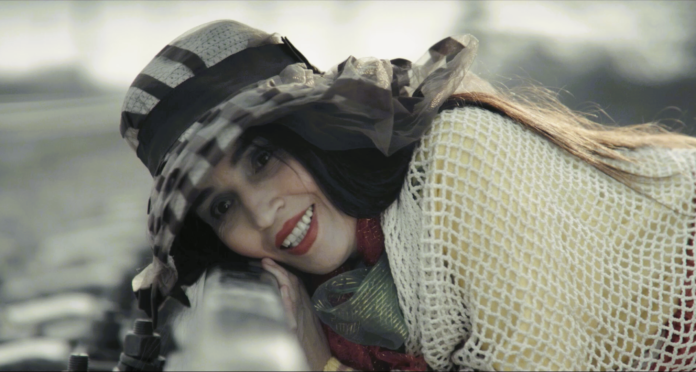In 2022 UZBEKTELEFILM released The Rehearsal by the young director Khusnoro Rozmatova (1994). This title has immediate echoes of another film with a similar name:Ingrid Bergman’s After the Rehearsal.At first glance, the Uzbek director’s film is a homage to the film of the master of cinema:her film is also connected with the theater, as well as a triangle of relations between an elderly theater director, a young actress who wants to excel on stage and an elderly actress who is related to the theater director. Homage is also evident in the tone and intonation of the young cinematographer’s film. But, on the other hand, the film expanded the boundaries of the television project of Bergman, bringing the trio to the final chords, turning out to be a kind of reflector of the state of Uzbek society.
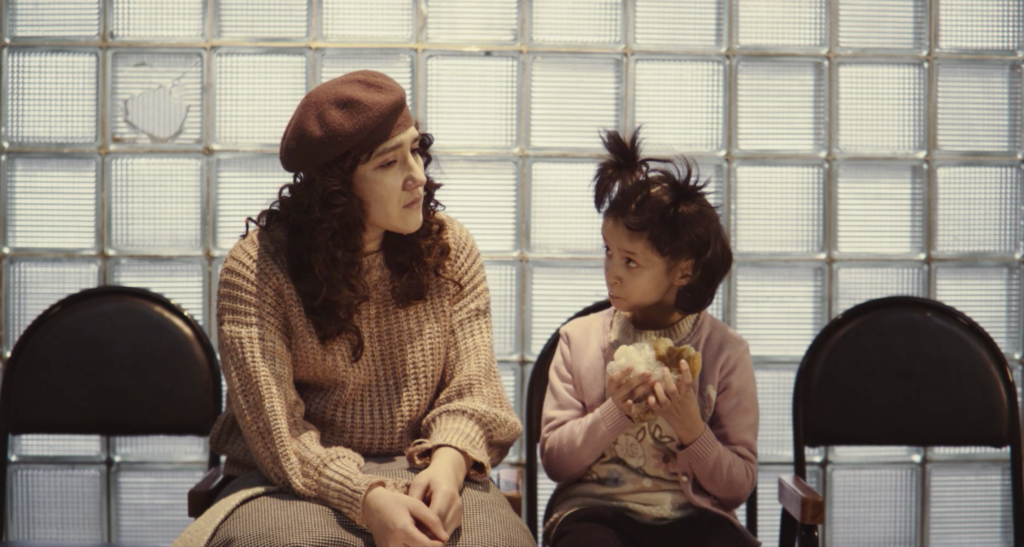
The main character is Orzu (wish) (Zarifa Gafurova), a young graduate actress who has arrived in Tashkent, the capital of Uzbekistan, lives in a rented apartment. Her room,hung with photographs from Andrei Tarkovsky’s films The Mirror and Stalker, is dark, as if the sun never peeks in. She limps, but carefully hides her physical handicap from others, putting on a special insole which evens out her gait, each time before leaving the house. She has no parents; they were disabled and both now deceased. Her younger sister, who suffers from cerebral palsy, lives in an orphanage, where care is better than she could give. She dreams of taking her younger sister out of there as soon as she can better look after herself and her sister.
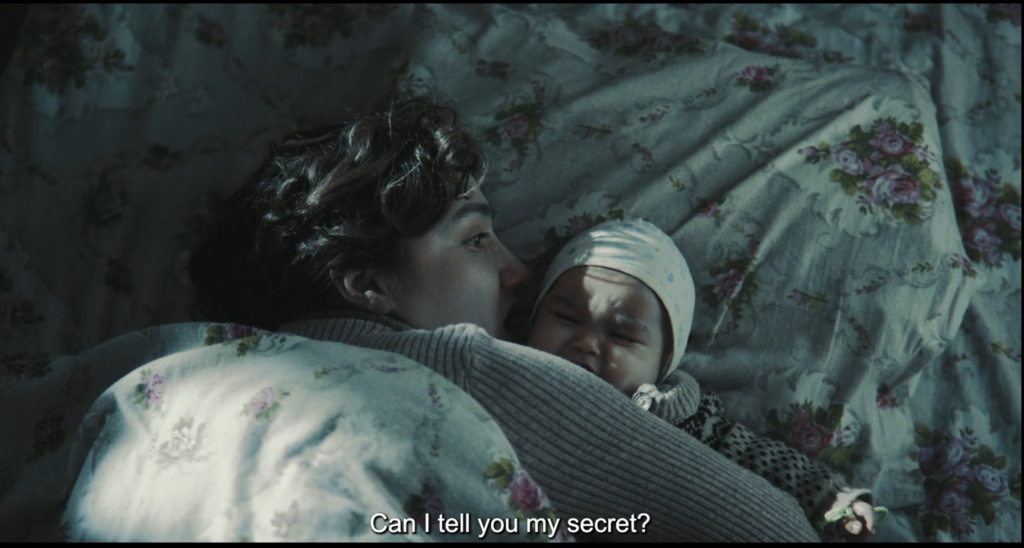
Orzu plays the role of a pregnant woman in the theater production. Her pregnancy is linked to the idea of a Superman (or Superhuman) destined to be born into this world.
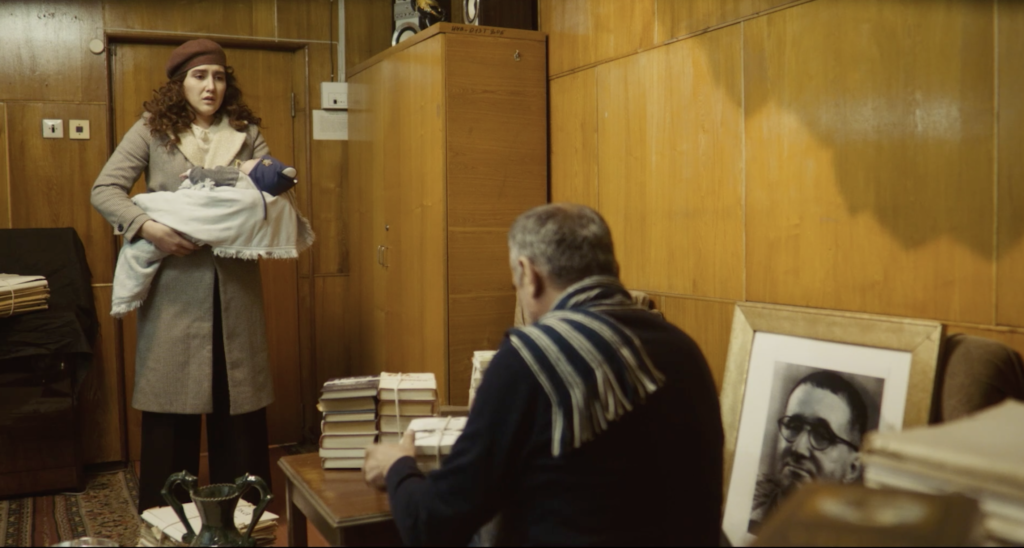
Unfortunately, she does not know how to play the role of this expectant woman, does not understand why her child is to be the last human in this world. However, the theater director (Tohir Saidov), an ill-tempered man who looks like the late president of the country, tells her that this is how it should be, and thats that. The emphasis on the unjustified rigidity or inflexibility of the director will be noted more than once in this work of the filmmaker. He would later tell Orzu that he was staging performances to better understand his idea himself, but he was also sure that the actors would still not understand his idea of staging; to which Orzu sarcastically throws in the face of the director: “Oh yes, you are a god, and we are your puppets.”
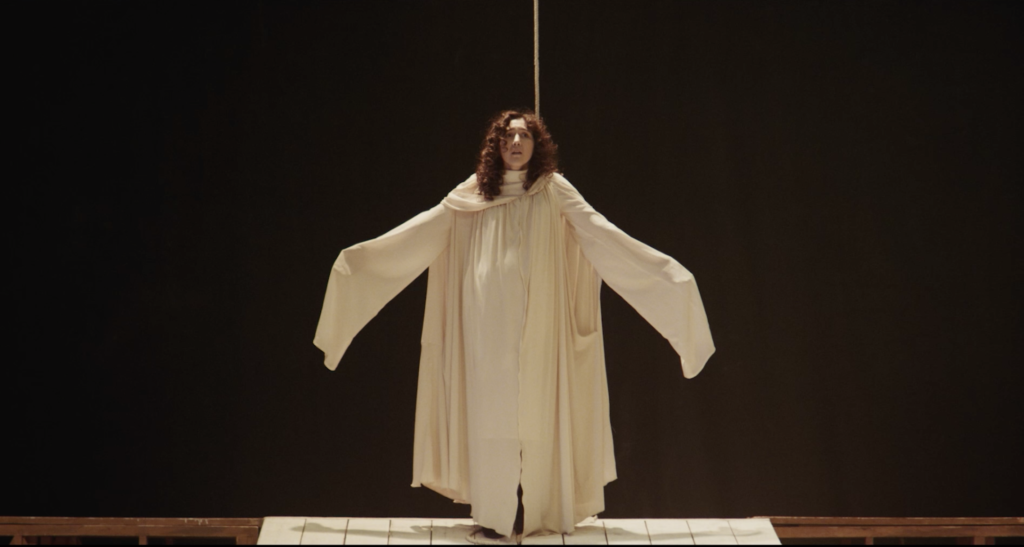
Ruzmatova raises the urgent topic of the traditional society, where a more senior person is always right, whether it is the director of any institution, the father of a family, or a theater director. Even worse, when the theater director, asking the main character about her family roots, speculates how could she be born normal to ‘abnormal’ parents, hinting at their disability. “Do you consider it a miracle that I was born healthy?” Orzu asks the director in shock, attempting to shame him. “And, if you do not believe that healthy children can be born from sick parents, how can you talk about the birth of the Superman into a humanity mired in sin? – the actress asks the director. But later, the theater director angrily confesses to the main character Orzu that he cast her as the pregnant woman who is to give birth to the Superman because she was a handicapped woman, hinting at her lameness. “In the soul of a disabled human, the desire to become a Superhuman is stronger than that of an ordinary person,” the theater director states without any empathy to the young actress.
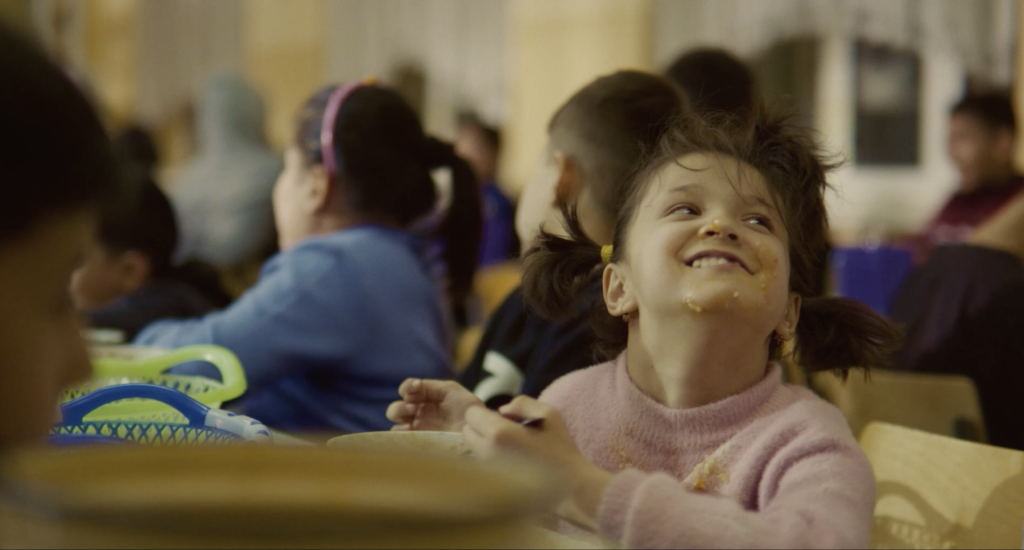
The idea of the birth of a perfect man has occupied many thinkers in the recent past: not only Nietzsche, but also for example Isadora Duncan, as well as underpinning the Bolshevik revolution of 1917. The same idea is at the forefront in this Uzbek filmmaker’s work. She takes Nietzsche’s Thus Spoken Zarathustra, putting the main idea of the book into the mouth of a theater director. However, he denies this fact.
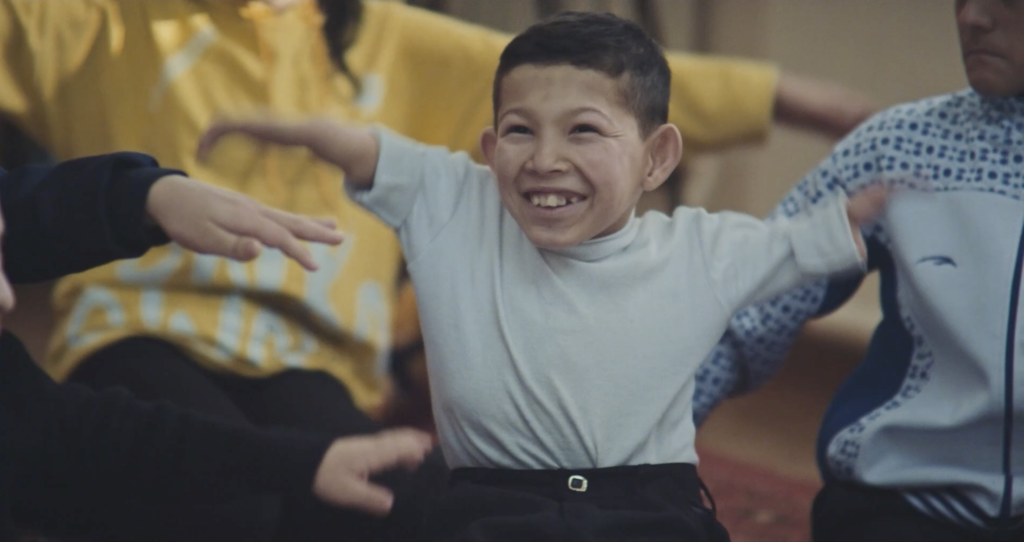
“So, you wrote your play in imitation of Nietzsche? asks Orzu.”The last man I have to give birth to is the same Superman that Zarathustra is talking about, right?” – he presses the director’s actress.
“It has nothing to do with Nietzsche,” the director replies irritably.
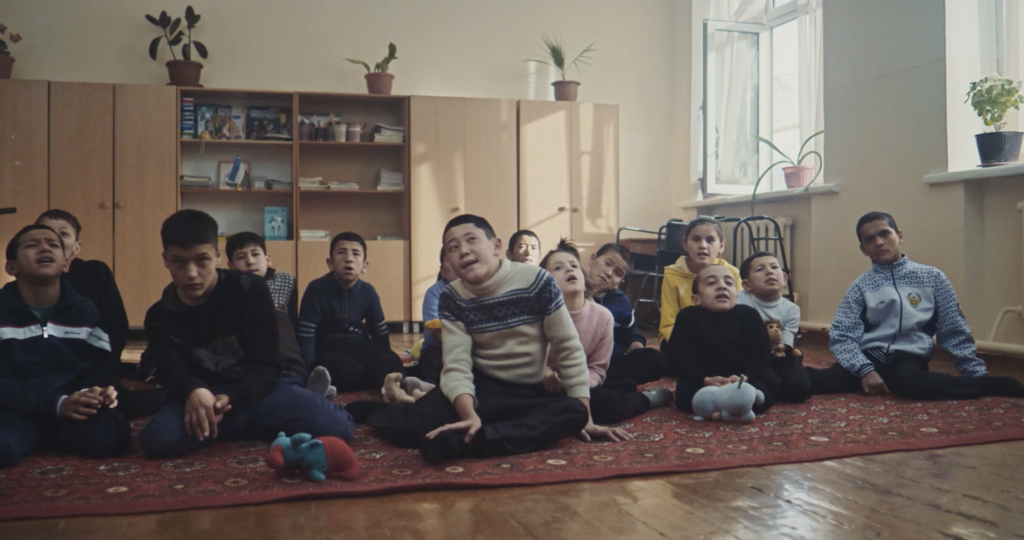
Apparently, it does not apply because each creator creates his own miracle, and the idea of a perfect man is not at all new. However, why does the theater director deny Nietzsche’s influence on his production? Probably because the personality cult is not a phenomenon solely found in totalitarian regimes, but also in temples, in theaters where the director is God; as well as in the father and the alpha male. He admonishes Orzu that the world she sees is greedy, not real. “People have stopped believing in a deity,that they are parts of God. Look around, there are only empty souls, people filled with nothing; they are ruled by fear, they are afraid of everything, especially death, hunger and being humiliated. All laws are designed to keep people in fear, to subdue them. But the Superman does not need these rules, he is above these laws. His morality is perfect”.
All the arrogance of the theater director will disappear due to the third hero of the triangle, Suvaido Akhmedova (Elmira Rakhimjonova), who plays the wife of the theater director. She is considered a lead actress and her main roles are Chekhov heroines.
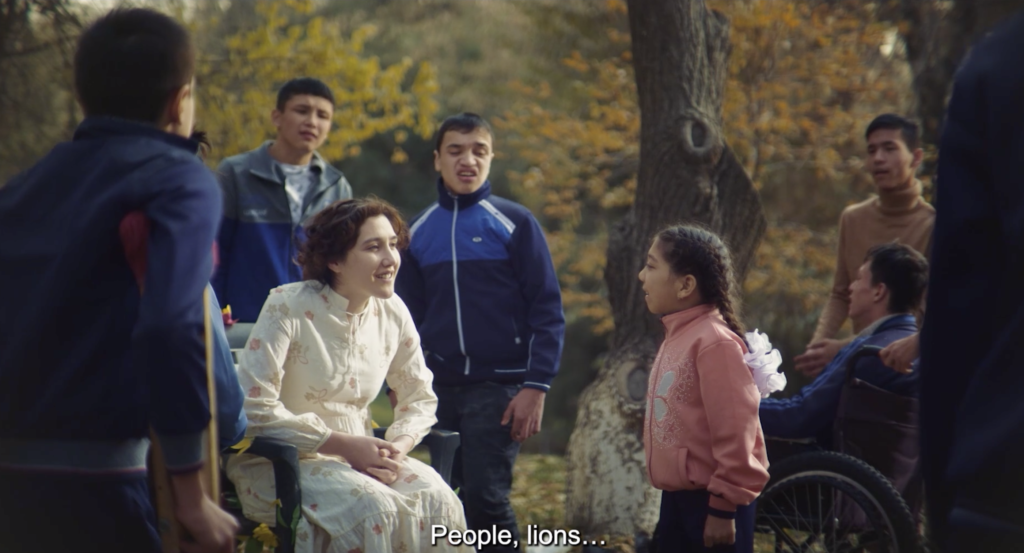
However, Chekhov will be staged less and less in the theater, and the actress looks worried. And in this way Ruzmatova raises another important issue: the relevance of the theater to society, the vitality of the classics on the stage, the concern of cultural officials to stage their own “national” productions that are close to the mentality of the local viewers. The director asks questions concerning colonial heritage, whether the Uzbek audience needs Chekhov, even if it is in the Uzbek language. Commission from the state body, an inherited relic from the times of the USSR in Uzbekistan and Tajikistan,which decides on the repertoire of theaters, rejects the performance of the iron director.
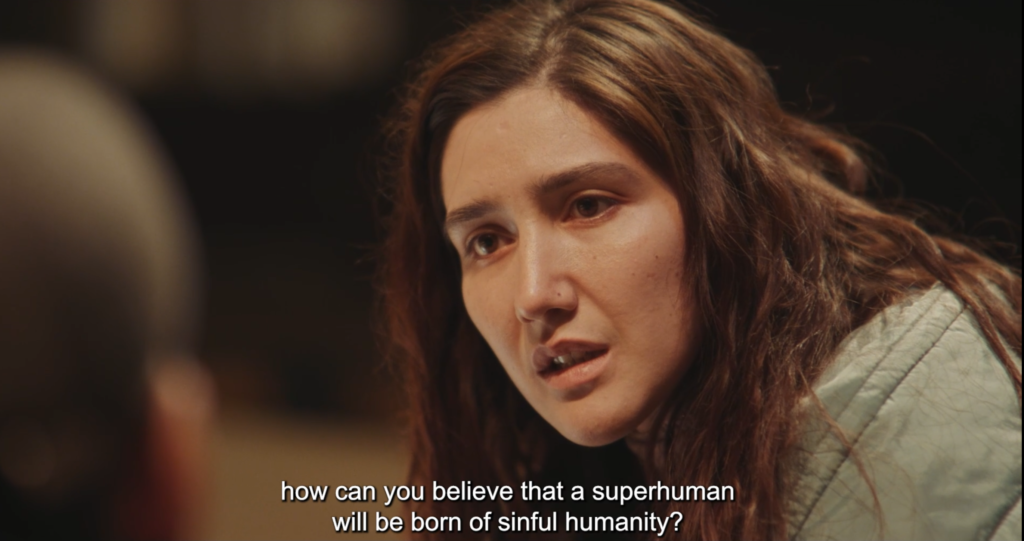
“Everyone needs a feeling of happiness, joy; everyone needs laughter, everyone wants entertainment! But I don’t need such happiness” Suvaido declares in her heart.”People can’t be happy because there’s suffering all around”.
Suwaido’s compassion is at first incomprehensible. Nevertheless, she is the first to give a hand to Orzu, during her premature birth in the theater; she also is the first to reveal to her the selfishness and callousness of her husband, the director of the production in the film. Unfortunately, Orzu does not understand and does not accept the warnings of Suwaido, considering them to be based on envy and professional jealousy.
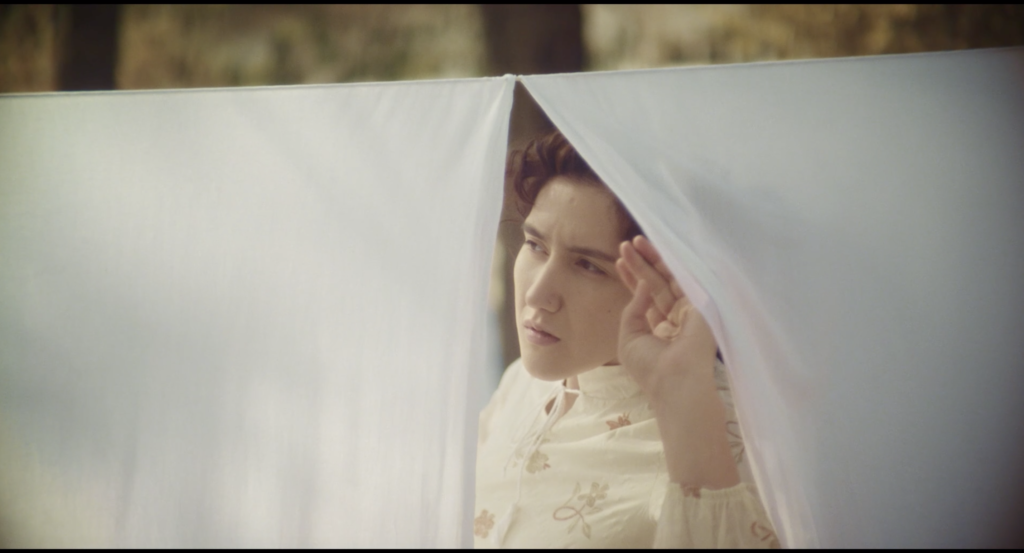
Tired of the lack of sympathy, material support, of her inability to sustain a younger sister and an illegitimate son whom she conceived with the theater director, Orzu wants to repeat the fate of her mother; to throw herself under a train with the words: “do you know the train going to the back door of the world?” Luckily, she can’t follow her steps because she loves life, the theater, her younger sister and her baby too much, which would not allow her to settle accounts with her life.
Ruzmatova reports the director’s abuse of his official position. Is this the only case in Uzbekistan or Tajikistan? In my opinion, it is not unique. If Bergman’s theater director believes that one should not have an abortion for the sake of the theater, that the theater is not worth it, advising a young actress who turns out to be pregnant by her boyfriend to abandon the child. On the contrary Ruzmatova’s theater director advises Orzu to have an abortion, feeling no guilt towards a female colleague for sexual harassment and the conception of her child. The MeToo movement has not yet reached Central Asia, but such films are a herald of women’s rights to self-determination and inviolability, and to condemn sexual violence and harassment in the workplace.
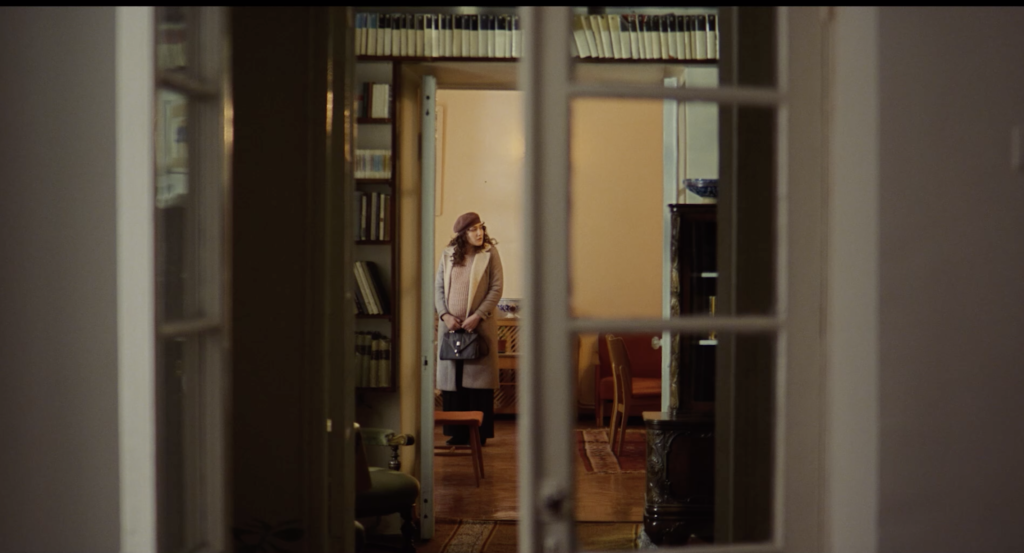
Khusnoro Ruzmatova, a certified actress and director, worked for several years in the Tashkent State theater before entering the film industry. She believes that making films brings her closer to understanding human nature, the universe and God. Her film may be somehow autobiographical, and somehow based on life experience. The basis of Shakespeare’s saying that the World is a stage and the people in it – actors, forms the basis of the film. In principle, the heroes of the film are archetypal: here is the villain (he is also a mentor, gatekeeper, werewolf, shadow and rogue in the image of a theater director), here is the victim (the heroine in the image of Orzu), and here is the fairy (ally and messenger in the image of Suvaido). As in any fairy tale, good must win. Whether it here wins are up to the viewer to decide, but the last chords of the film reflect the play of children, almost all the disabled, participants in the play about the Superman, which puts Orzu in a shelter for children with special needs. These children and her younger sister, incidentally, are also archetypal images of the heroine, personifying her shadow.

Fortunately, this is just a game, because it is better to practice dreaming, to idealize a better life for humanity in the game or on a stage, but not to put it into practice, because none knows what the result might be.
Scenario and Director: Khusnora Ruzmatova
Director of Photography: Doniyor Aripov
Production Designer: Husayn Eshniyozov
Musical Scorer: Khurshida Khasanova
Editor: Timur Kiyasov
Sound-designers: Davron Tursunov, Alisher Mahmudov
Cast: Zarifa Gafurova, Elmira Rahimjonova, Tohir Saidov, Muslima Muhammadieva
General Producer: Otkir Ahmedov
Language: Uzbek (with English subtitles)
Production: UZBEKTELEFILM, 2022



